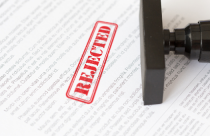A Quick Guide on Using the DOAJ Database

What exactly is open access (OA) and what does it mean to publishers and researchers? There have been many articles about OA and its benefits, but briefly, open access simply means that research is published in a forum that is accessible without having to pay a fee. Usually, if you want to access a published research article, there is a cost involved (abstracts are normally free). This cost is especially high for library subscriptions to journals that are kept for their professors and students—sometimes in the thousands of dollars!
Open access allows a person to access the entire article, conference transactions, and other academic research information without restrictions other than standard copyright laws. However, there are still costs associated with publishing online that need to be recouped and someone must pay these. Open access requires that researchers pay these processing fees. To help their researchers, many institutions provide funding.
There are now several thousand open access journals with nearly 2 million articles. Finding an open-access research article or publishing your own research can be a daunting task; however, help is available.
What is Directory of Open Access Journals (DOAJ)?
According to one article, nearly one-third of all academic journals provide open access to anyone interested. This includes citing them in their own research. To help researchers find and use published articles of interest, the Directory of Open Access Journals (DOAJ) was created.
In 2003, Lund University, Sweden, launched DOAJ as an aid for researchers. In practice, DOAJ aims to ensure that all articles and journals listed in its database have been subjected to quality-control standards for content. Categorical memberships are offered to organizations to help fund the effort. Members are bound by DOAJ’s Principles of Transparency and Best Practice in Scholarly Publishing (Principles) and can be removed for non-compliance.
The goal of scientific research has always been to provide information to everyone interested and to help further the advancement of science. DOAJ wants to make this as easy as possible. Currently, DOAJ has over 16,200 journals in its database, out of which 11,675 journals do not have any APCs.
How to Use the DOAJ Database
One of the best ways to examine what DOAJ offers is to visit its FAQ page but some tips on using the system are provided here too.
- Signing up/logging in: Only publishers and volunteers need to have an account; therefore, there is no need for normal users to log in to use the system.
- How are journals classified/categorized? DOAJ uses the Library of Congress Classification system. DOAJ’s editorial team classifies each journal and metadata, which then appear in the subject categories and subcategories.
- How do I find a journal/article in DOAJ? Articles and journals can be searched using the various assigned categories. Publishers also often assign their own keywords as well. Using logical keywords within the subject category will help you find what you need.
- What is the DOAJ seal on journals? This seal certifies that the journal has maintained openness and best practices according to DOAJ’s Principles. Journals must comply with seven conditions to receive the seal (e.g., reuse of journal information, copyright transfers to the author, use of a digital preservation program). The website provides a list of journals that have the DOAJ seal.
- How do I use the metadata in DOAJ? DOAJ supports the Open Archives Initiative Protocol for Metadata Harvesting (OAI-PMH) protocols. You can also download the list of open access journals. These will be imported into an analysis tool, such as MS Excel. You can then open the file on your computer and save according to the instructions. DOAJ also allows you to “crawl” its website but only if general guidelines are followed and the activity does not affect its performance. There is also a feature to keep up with new additions to the DOAJ database.
Should I Publish in Open Access Journals?
Now that you’ve become more familiar with open access and DOAJ, you might ask yourself whether you want to publish in this forum. There are some advantages and disadvantages to open access and you will need to weigh them against your own career goals.
For example, some of the advantages allow you to offer your research results immediately to anyone interested. This helps in furthering the goals of science and possibly encourages others to continue research in that particular field. Another is that you can help your institutional library save subscription costs. In addition, articles published in the open access forum are more easily found and tend to have greater short-term impacts because they are quickly available.
Some of the disadvantages might be that you simply cannot afford to pay for publishing your article. Publishers of journals that are not open access charge user and subscription fees, but not researcher fees. Open access requires that the researcher pay a fee. You must also consider that publishing in a prestigious high impact factor journal that is not open access, might speak more about your credibility as a researcher and further your career faster.
Are There Alternatives?
If open access is not your choice, what else can you do to avoid the pitfalls and time-consuming process of publishing in non-open access journals? There are a few alternatives.
- University archiving: University archives of articles are available free to anyone. There might be time constraints imposed by the publisher before posting in an archive.
- Public archiving: arXiv provides a repository of papers in the science fields. Many researchers use this service instead of publishing in a peer-reviewed journal.
- Researcher’s webpage: In most cases, your article can be published on your own web page, but time restrictions might apply.
You might want to consider self-archiving if the other forums are not available to you or are cost prohibitive. However, whichever path you choose, you should ensure that it meets your personal and professional goals. Have you used the DOAJ service before to identify an open access journal for publishing your manuscript? Let us know your thoughts in the comments below!









